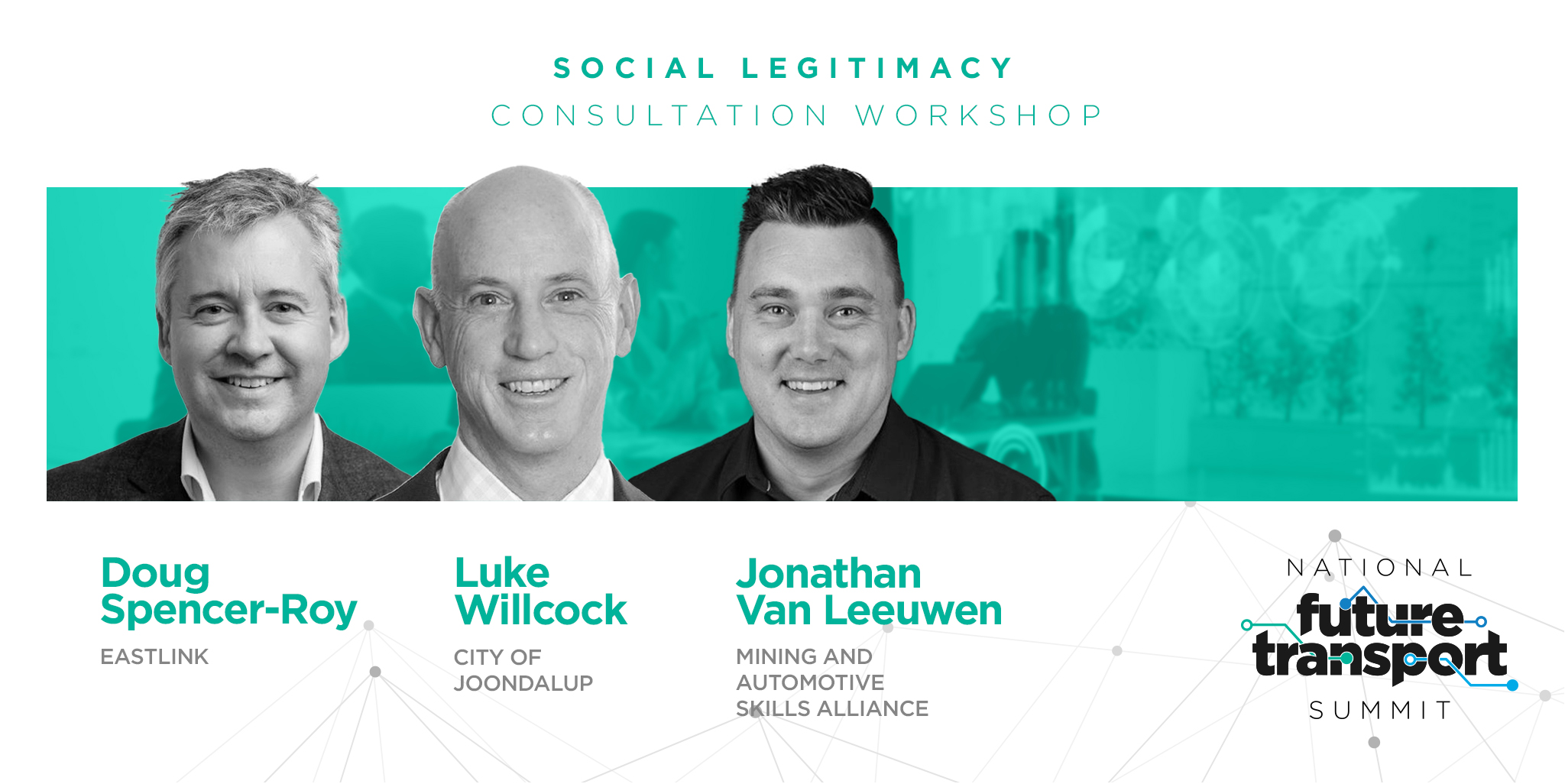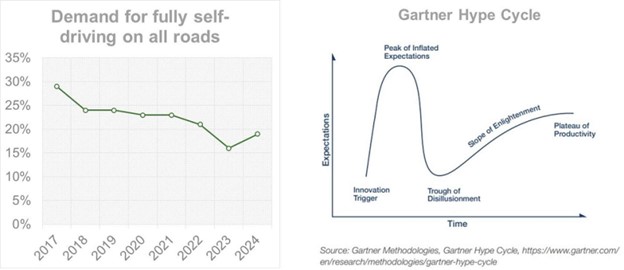
Trust, capability and community confidence in future transport
The fifth consultation workshop for the National Future Transport Summit was held online via Teams Webinar on 10July 2025. The session brought together government, industry and research participants to explore the crucial theme of social legitimacy — a key factor underpinning community acceptance and successful adoption of connected and automated transport in Australia.
Opening the session, Brooke Hall, Executive Director of the Centre for Connected and Automated Transport (CCAT),emphasised that technological readiness alone will not deliver the benefits of automated transport. He framed social legitimacy as essential for building public confidence, ensuring inclusive engagement, and developing a skilled workforce — all critical to securing a social licence for new transport technologies.
Trust and engagement: building a foundation for acceptance
Douglas Spencer-Roy, Corporate Affairs Manager at EastLink
Doug opened the expert addresses by sharing insights from Australia’s largest and longest-running public attitude studies on vehicle technologies, EastLink’s Annual Victorian Self-Driving& Electric Car Survey. Drawing on over eight years of annual survey data, Douglas highlighted how public trust evolves with experience, media profile and visible progress, moving from early optimism through disillusionment to gradual acceptance.

Doug called for expanded research to capture diverse geographic, demographic and industry perspectives, stressing that ongoing, inclusive and transparent engagement is vital to building and maintaining trust.
Local government as a trusted intermediary
Luke Wilcock, Manager of Economic Development and Advocacy at the City of Joondalup
Luke provided a local government perspective, emphasising councils’ proximity to community sentiment. He described social legitimacy as a journey requiring meaningful engagement, empathy and sustained dialogue rather than one-way communication.
He also highlighted the role of convenience in building acceptance, noting that technologies become legitimate when they clearly improve everyday life, citing examples like smartphones and contactless payments. He encouraged local governments to actively translate the vision of automated transport into benefits communities understand and value.
Workforce capability: the backbone of confidence
Jonathan Van Leeuwen, Principal Industry Engagement Advisor for the automotive sector AUSMASA
Jonathan closed the expert presentations by underscoring the crucial link between workforce skills and public trust. Drawing on decades of automotive industry experience, Jonathan explained that community confidence depends on knowing vehicles can be safely serviced, maintained and repaired.
Jonathan shared examples from LPG and electric vehicle adoption, demonstrating how strategic investment invocational education and training builds public trust and supports technology uptake.
He stressed the need for early planning and national coordination to ensure workforce readiness accompanies the deployment of automated vehicles, especially in regional and remote areas.
Q&A Discussion
What drives or limits public trust?
Participants highlighted that trust is shaped not just by safety data but by visible, reliable support systems and whether people feel genuinely heard and involved. Convenience and tangible benefits often outweigh abstract fears.
How does workforce capability affect perceptions?
A skilled, confident workforce underpins trust in new technologies. Limited servicing options can stall adoption, as seen in the electric vehicle market.
What does meaningful community engagement look like?
Effective engagement requires communicating with communities, enabling co-design and addressing concerns respectfully, rather than simply informing or dismissing dissenting voices.
How do we manage vocal minority influence?
Small but vocal groups can disproportionately affect public debate, so their views must be understood and addressed thoughtfully to ensure inclusive progress.
What early deployment models can build trust?
Publicly accessible robotaxi trials and similar initiatives provide practical experiences that can reduce fears and build familiarity.
Next Steps
This workshop forms part of the national consultation process shaping the National Future Transport Summit, scheduled for 17–18 September at Brisbane City Hall. Insights from this workshop will inform draft recommendations debated at the Summit and subsequently presented to government as a blueprint for Australia’s transport future.
Written submissions remain open until 25 July 2025. Contributions can address overarching issues or any of the five Summit themes (safety, sustainability, productivity, infrastructure and social legitimacy), respond to the Discussion Paper questions or offering new or broader perspectives. All submissions will be published on the Summit website and acknowledged in the final report.
To read the Discussion Paper, register for remaining workshops, or make a submission, visit:
www.ccat.org.au/summit
Missed the workshop? Watch the recording here: